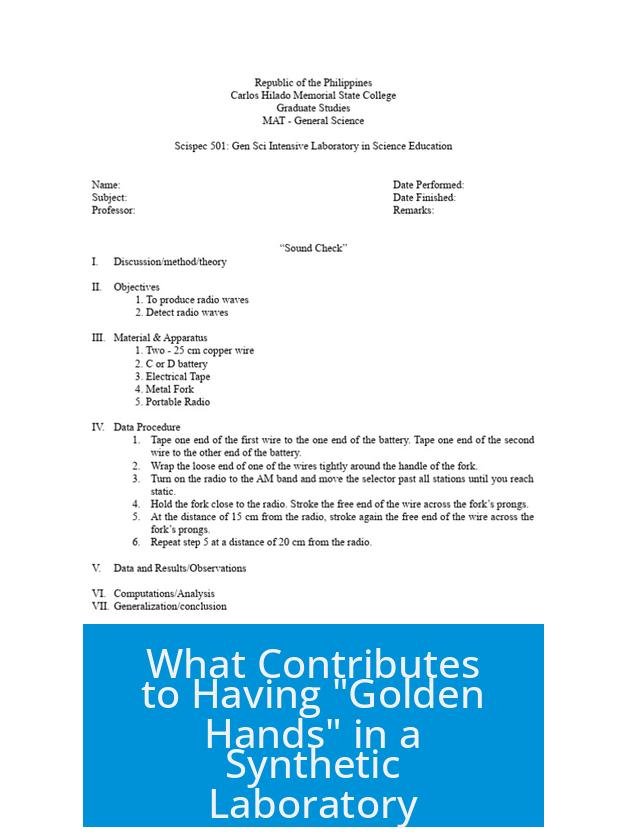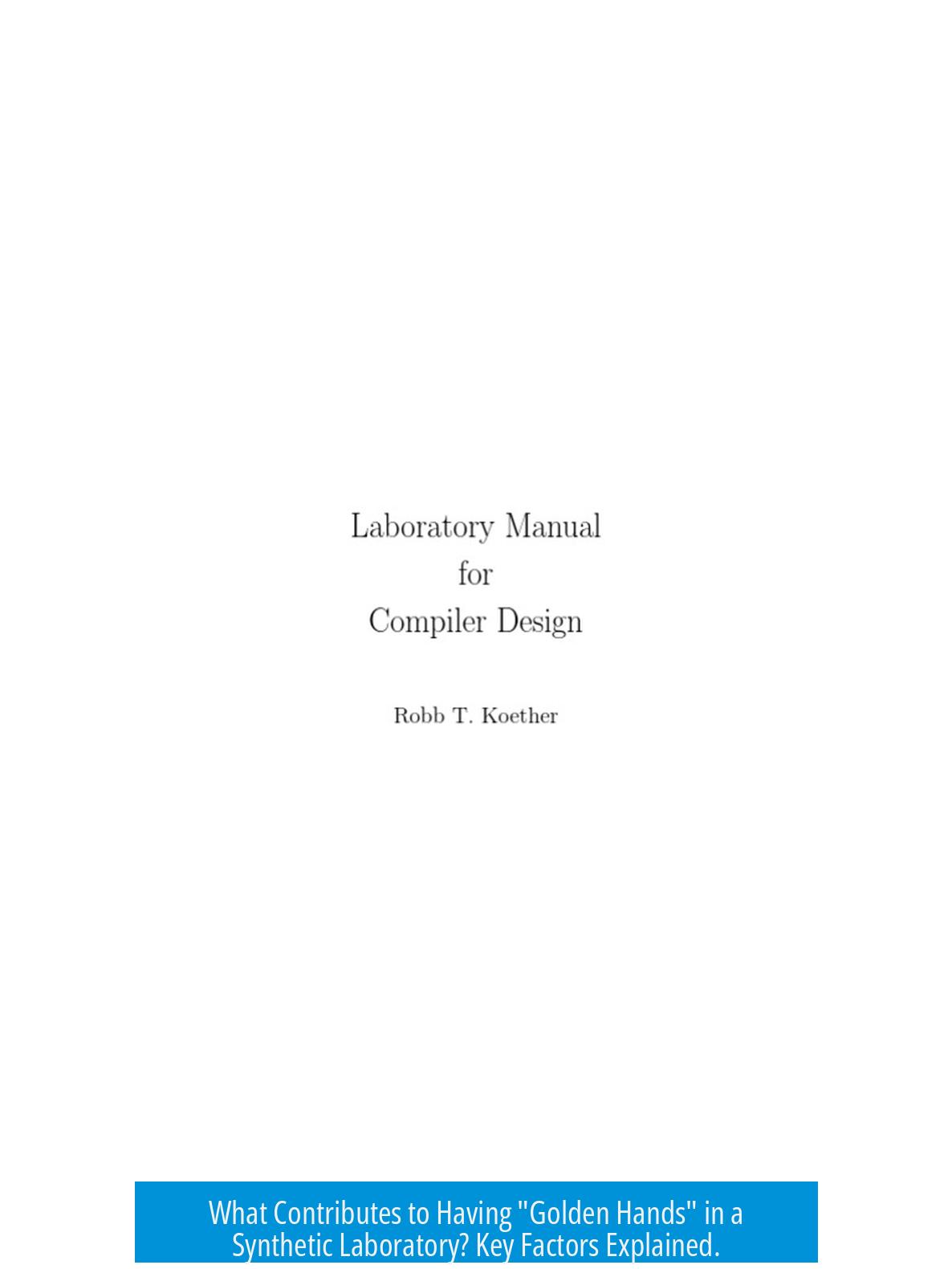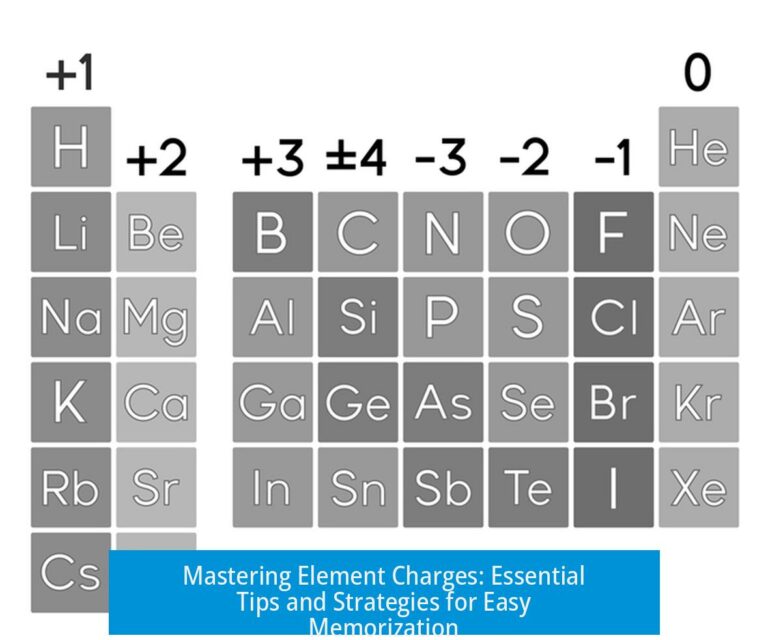What Contributes to Having “Golden Hands” in a Synthetic Laboratory?

“Golden hands” in a synthetic laboratory result from a blend of patience, meticulous attention to detail, accuracy in measurement, quality equipment, and hands-on experience. These elements combined allow a chemist to perform delicate and complex tasks proficiently.
Patience and Repetition
Patience is fundamental. Repeating procedures many times enhances skill. Each repetition helps a chemist gain familiarity with techniques like recrystallization. This repeated practice improves understanding of underlying mechanisms.
- Repeating steps builds precision.
- Patience prevents rushing, reducing errors.
- Understanding grows with repeated practice.
Meticulous Attention to Detail
Detail matters greatly. Chemists focus on critical steps that impact yield and completion. Prioritizing these steps over trivial aspects saves time and boosts success.
- Focus on “needle-moving” steps.
- Avoid distractions by ignoring non-essential tasks.
- Meticulous work ensures reproducibility.
Measurement Accuracy and Quality Equipment
Accurate measurements are vital. Precision instruments support exact reagent dosing and control. Reliable equipment reduces variability and improves outcomes.
- Use calibrated balances and volumetric tools.
- Maintain instruments to ensure reliability.
- Thorough approach incorporates measurement checks.
Hands-On Experience and Manual Dexterity
Manual skills develop from early hands-on activities. Backgrounds in tinkering or model building enhance lab technique. Natural aptitude can make glassware handling and complex manipulations intuitive.
- Experience with small tools improves dexterity.
- Practicing fine motor skills aids synthetic work.
- Routine lab work reinforces bodily coordination.
Summary of Key Takeaways
- Patience and repetition refine laboratory techniques.
- Focused attention to essential steps increases efficiency.
- Accurate measurement and quality equipment enhance results.
- Manual skills and hands-on experience develop laboratory proficiency.
What role does patience play in developing “Golden Hands” in the lab?
Patience is crucial for repeating techniques. Repetition helps improve skills over time. Each repetition deepens understanding and sharpens technique.
How does attention to detail affect one’s proficiency in synthesis?
Focusing on key steps enhances yield and efficiency. Ignoring less impactful tasks saves time. Precise attention prevents mistakes and improves results.
Why is measurement accuracy important for someone with “Golden Hands”?
Accurate measurements ensure reproducibility and success. Using quality equipment supports this accuracy. Together, they lead to better, consistent outcomes.
How does early hands-on experience influence lab skills?
Manual work from a young age builds dexterity. Fixing or crafting things fosters natural lab aptitude. Such experience makes lab tasks feel intuitive.
Can a focus on significant steps improve overall synthesis performance?
Yes. Prioritizing the most impactful steps boosts efficiency and final yield. Spending less time on aesthetics helps concentrate efforts where they matter most.





Leave a Comment